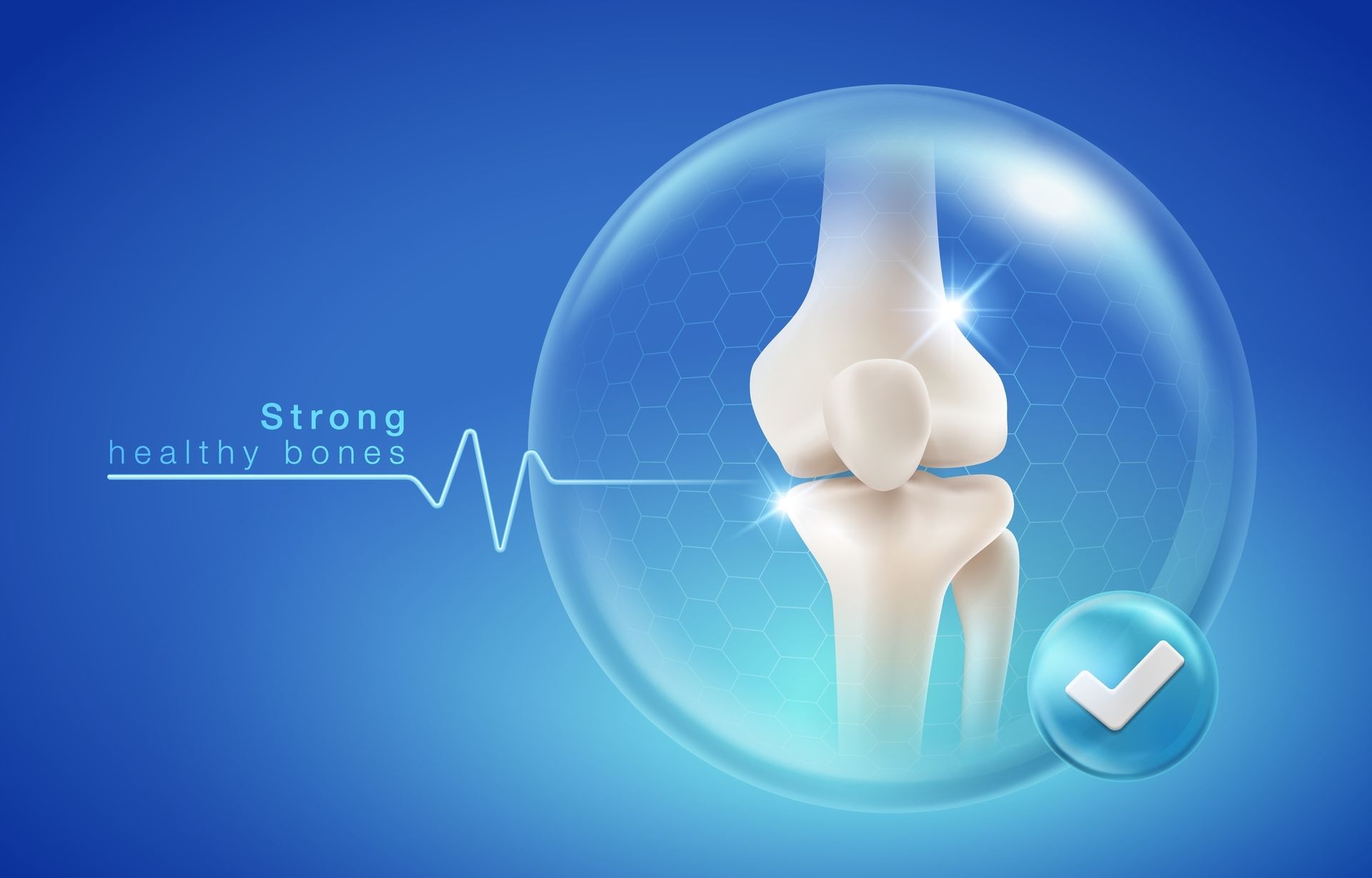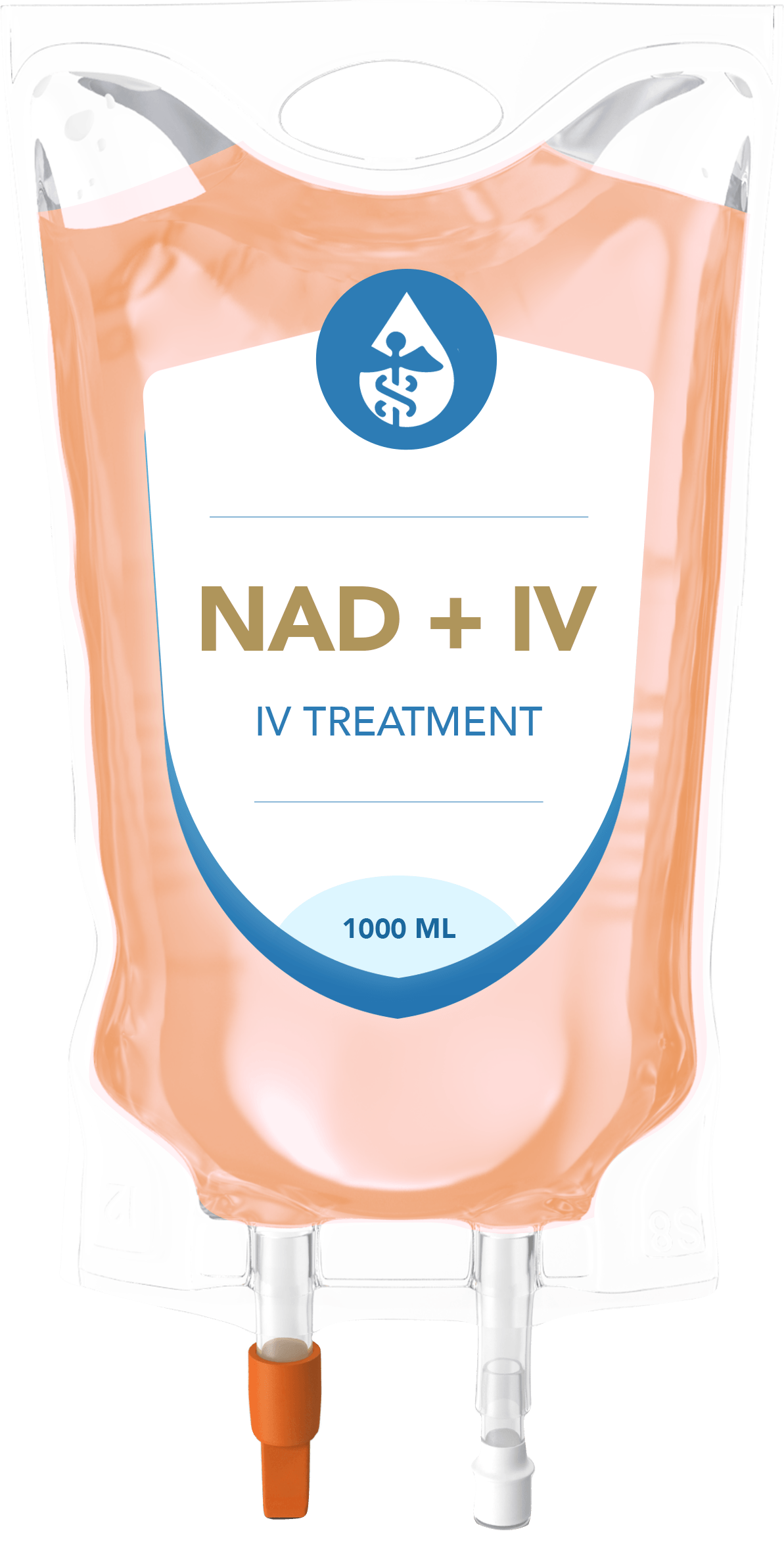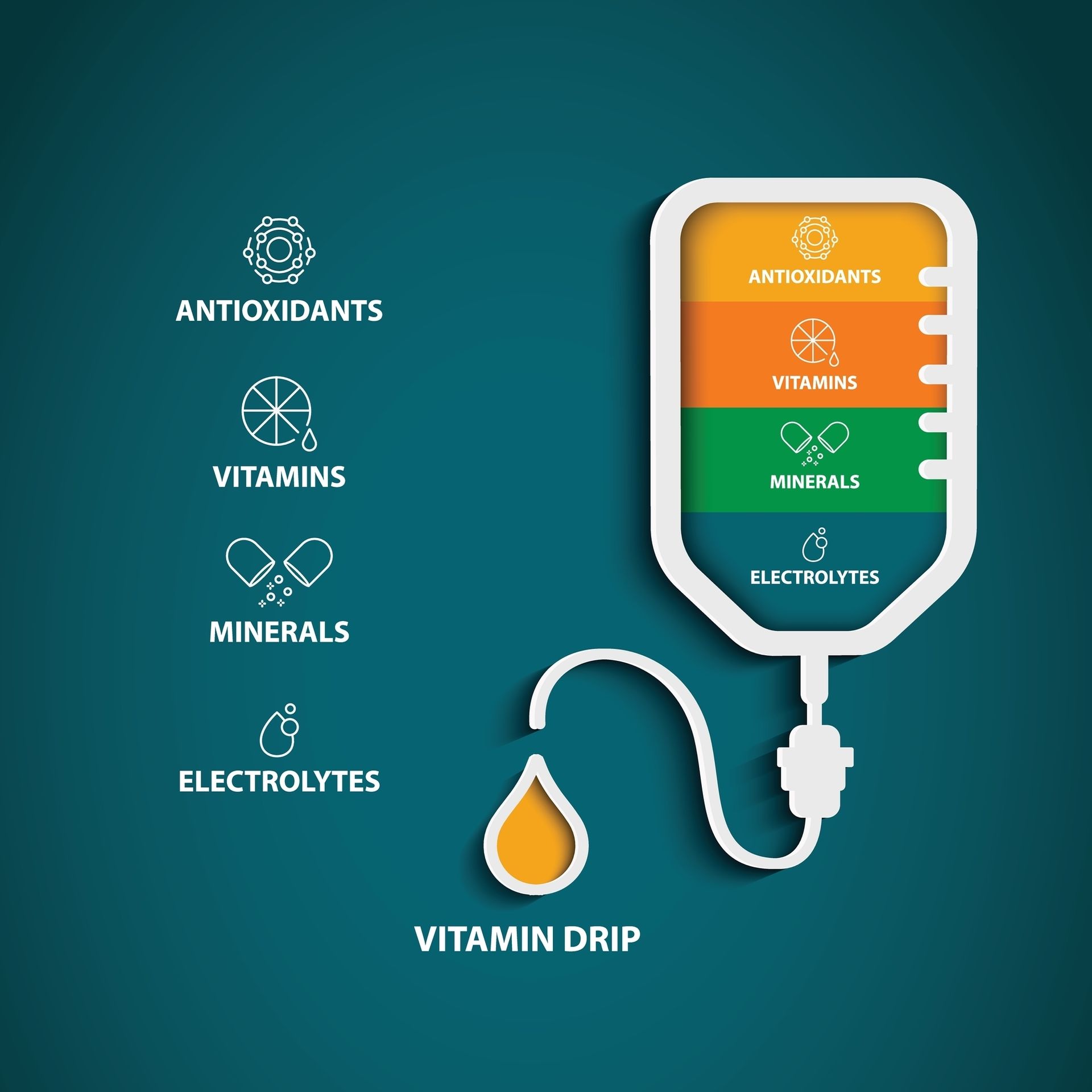Articles and Information
How to Use Vitamin D for Optimal Bone Health and Immunity

Vitamin D is an essential nutrient that plays a crucial role in maintaining overall health, particularly when it comes to bone integrity and immune function. Understanding how to effectively utilize vitamin D can help you optimize your bone health and enhance your immune response. In this article, we will explore the various aspects of vitamin D, including its role in the body, sources, absorption optimization, and recommended intake.
Understanding the Role of Vitamin D in the Body
Vitamin D is a fat-soluble vitamin that acts more like a hormone in our bodies. It is vital for several physiological processes, each contributing significantly to our health. By regulating calcium and phosphorus levels in the bloodstream, vitamin D aids in maintaining healthy bones and teeth.
Moreover, vitamin D plays a role in cell growth modulation, neuromuscular function, and immune system regulation. Deficiencies in this vitamin can lead to various health issues, reinforcing the importance of ensuring adequate levels in our bodies.
The Connection Between Vitamin D and Bone Health
One of the primary functions of vitamin D is to facilitate calcium absorption in the intestines. Calcium is a crucial mineral for bone formation and maintenance. When vitamin D levels are sufficient, calcium is effectively utilized, leading to stronger bones.
Without adequate vitamin D, the body may experience bone deterioration, leading to conditions such as osteomalacia in adults and rickets in children. Thus, ensuring appropriate vitamin D levels is key to preventing such disorders and supporting overall skeletal health.
Vitamin D and Its Impact on Immune Function
In addition to its role in bone health, vitamin D is fundamental in regulating immune responses. It helps modulate the immune system, enhancing our ability to ward off infections and diseases.
Research has shown that individuals with sufficient vitamin D levels tend to have a more robust immune response compared to those with vitamin D deficiency. This suggests that maintaining adequate vitamin D levels may contribute to a lowered risk of autoimmune diseases and respiratory infections.
Sources of Vitamin D
There are several ways to obtain vitamin D, including exposure to sunlight, dietary sources, and supplements. Each source plays a unique role in meeting your body’s needs.
Sunlight as a Natural Source of Vitamin D
Sunlight is one of the best natural sources of vitamin D. When your skin is exposed to ultraviolet B (UVB) rays from the sun, it synthesizes vitamin D. Just 10 to 30 minutes of midday sun exposure several times a week can help most people maintain adequate levels.
However, factors like geographic location, skin pigment, and the use of sunscreen can affect vitamin D synthesis. Therefore, it’s important to consider these factors when relying on sunlight as a source of vitamin D.
Dietary Sources of Vitamin D
In addition to sunlight, certain foods can provide vitamin D. Some of the best dietary sources include:
- Fatty fish such as salmon, mackerel, and sardines
- Cod liver oil
- Egg yolks
- Fortified foods like dairy products and cereals
- Mushrooms exposed to UV light
Including these foods in your diet can help you achieve adequate vitamin D levels, especially during months when sunlight exposure is limited.
Vitamin D Supplements: Pros and Cons
Vitamin D supplements are often recommended for individuals who have difficulty obtaining sufficient amounts through sunlight and diet. Various forms of supplements are available, including vitamin D2 and D3.
While supplements can effectively raise vitamin D levels, it’s important to consult with a healthcare professional before starting any supplementation. Over-supplementation can lead to toxicity, potentially causing adverse health effects such as hypercalcemia.
How to Optimize Vitamin D Absorption
Maximizing vitamin D absorption is essential for reaping its health benefits. Several factors can influence how well your body absorbs this vitamin.
Factors Affecting Vitamin D Absorption
Several elements can affect vitamin D absorption, including:
- Age: Older adults may have a reduced ability to synthesize vitamin D from sunlight.
- Body weight: Individuals with higher body fat may absorb vitamin D less efficiently.
- Digestive health: Conditions affecting gut health, such as celiac disease or inflammatory bowel disease, can impede vitamin D absorption.
Being aware of these factors can aid in addressing any challenges related to your vitamin D levels.
Tips to Enhance Vitamin D Absorption
To enhance vitamin D absorption:
- Consume vitamin D-rich foods alongside healthy fats, as fat allows for better absorption.
- Get regular sun exposure, especially during peak sunlight hours, while balancing safety precautions.
- Consider getting your vitamin D levels checked and consulting with a healthcare provider on supplementation if needed.
Implementing these strategies can significantly improve the effectiveness of vitamin D in your body.
Recommended Daily Intake of Vitamin D
Understanding the appropriate daily intake of vitamin D is essential for maintaining optimal health throughout your life.
Vitamin D Requirements for Different Age Groups
The recommended daily allowance (RDA) for vitamin D varies by age and life stage:
- Infants (0-12 months): 400 IU
- Children (1-18 years): 600 IU
- Adults (19-70 years): 600 IU
- Older adults (over 70 years): 800 IU
These guidelines help ensure that individuals receive adequate vitamin D for their specific needs.
Understanding Vitamin D Deficiency and Overdose
While vitamin D deficiency can lead to various health issues, it is equally important to avoid overdose. Symptoms of deficiency may include fatigue, bone pain, and increased infection risk.
On the other hand, vitamin D toxicity, though rare, can occur, leading to symptoms like nausea, vomiting, weakness, and kidney issues. Monitoring your intake and consulting with a healthcare professional can help you avoid these pitfalls while maximizing health benefits.
The Link Between Vitamin D Deficiency and Health Conditions
Vitamin D deficiency has been associated with a variety of health conditions, particularly concerning bone and immune health.
Vitamin D Deficiency and Bone Disorders
As stated earlier, a lack of vitamin D can seriously affect bone health. Conditions such as osteoporosis, where bones become brittle and weak, are often linked to insufficient vitamin D levels.
Ensuring adequate vitamin D intake can help prevent these bone disorders, promoting better skeletal health and reducing injury risk.
How Vitamin D Deficiency Affects Immunity
Low vitamin D levels can compromise immune function, making the body more susceptible to infections and illnesses. Research suggests that individuals with deficiency may have a higher incidence of autoimmunity and respiratory infections.
Consequently, maintaining optimal vitamin D levels can play a critical role in enhancing immune responses and overall health.
In conclusion, incorporating vitamin D through sunlight exposure, dietary sources, and supplements while understanding its role in bone health and immunity is vital for overall well-being. Regular monitoring and adjustments as necessary can optimize your vitamin D levels, leading to better health outcomes.
USEFUL LINKS
CONTACT US
If you think you may have a medical emergency, immediately call your doctor or dial 911.
This website does not provide medical advice. It is intended for informational purposes only. It is not a substitute for professional medical advice, diagnosis or treatment. Never ignore professional medical advice in seeking treatment because of something you read on the internet. These statements have not been evaluated by the Food and Drug Administration.
© 2021-2024 All Rights Reserved | Powered by OMG Marketing











